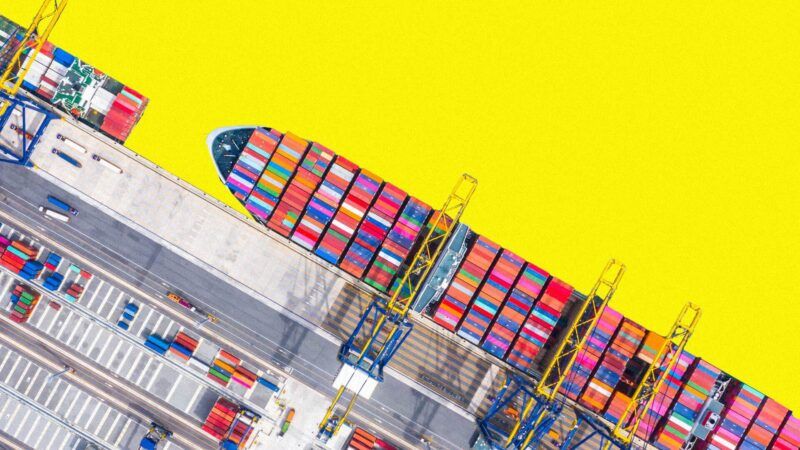Why We Can't Have Nice Things: Jones Act Traffic Jam
"It's just a very classic case of everything wrong with Washington."

From his second-floor office overlooking the harbor in Norwalk, Connecticut, Bob Kunkel can see Long Island looming over the horizon to the south.
It's only about 10 miles away, straight across the blue waters of the Long Island Sound. But shipping anything from Connecticut to Long Island—or back again—likely means loading a truck, sending it down Interstate 95 toward New York City, passing through some of the most congested highways in the whole country, and eventually meandering toward the final destination.
Kunkel, president of Alternative Marine Technologies, a design and construction supervision firm, says there ought to be a better way. This part of the country was built because Americans used to ship a lot of cargo by water—and he'd like to start doing that again.
"One Connecticut governor told everybody I-95 was a parking lot," he says. "So what are we doing to fix it? You're not going to build another highway. I mean, the costs are phenomenal."
Unfortunately, the costs to ship anything by water in the United States are phenomenal too, thanks to a federal law from 1920 that severely limits the number of cargo vessels operating here. The Jones Act requires that ships moving goods from one American port to another must be American-built, American-flagged, American-crewed, and registered in the United States.
That's a major stumbling block for Kunkel's plan to ease truck traffic along the I-95 corridor in Connecticut. He'd like to buy four mid-sized cargo vessels—big enough to fit more than 80 tractor-trailers but far smaller than the massive container ships built to cross oceans—to move goods from New Jersey to Long Island, bypassing the bottleneck of New York City.
A boat like that costs about $65 million on the international market, he says. But to get one that complies with the Jones Act will cost $125 million, or more.
"So now the numbers don't work," Kunkel tells Reason. "If we can't compete with trucking or support trucking, then there's no sense building the ship."
In the third episode of Why We Can't Have Nice Things, a new podcast series from Reason, we're looking at just some of the ways that the Jones Act drives up prices, makes it more difficult to ship goods to places like Puerto Rico and Hawaii, and snarls supply chains for American industries.
"It's just a very classic case of everything wrong with Washington," says Colin Grabow, a research fellow at the Cato Institute.
Further reading for this week's episode:
The Case Against the Jones Act, by Colin Grabow and Inu Manak
"How a Century-old Law Contributes to CT Traffic," by Jordan Nathaniel Fenster, CT Insider
"Building a Maritime Highway Across the Long Island Sound," by Ira Breskin, The New York Times
"The Obscure Maritime Law That Ruins Your Commute," by Scott Lincicome, The Atlantic
"Protectionist Policies Set To Inflate the Cost of Rebuilding Hawaii," by Colin Grabow
Written by Eric Boehm; produced and edited by Hunt Beaty; mixing by Ian Keyser; fact-checking by Katherine Sypher



Show Comments (46)